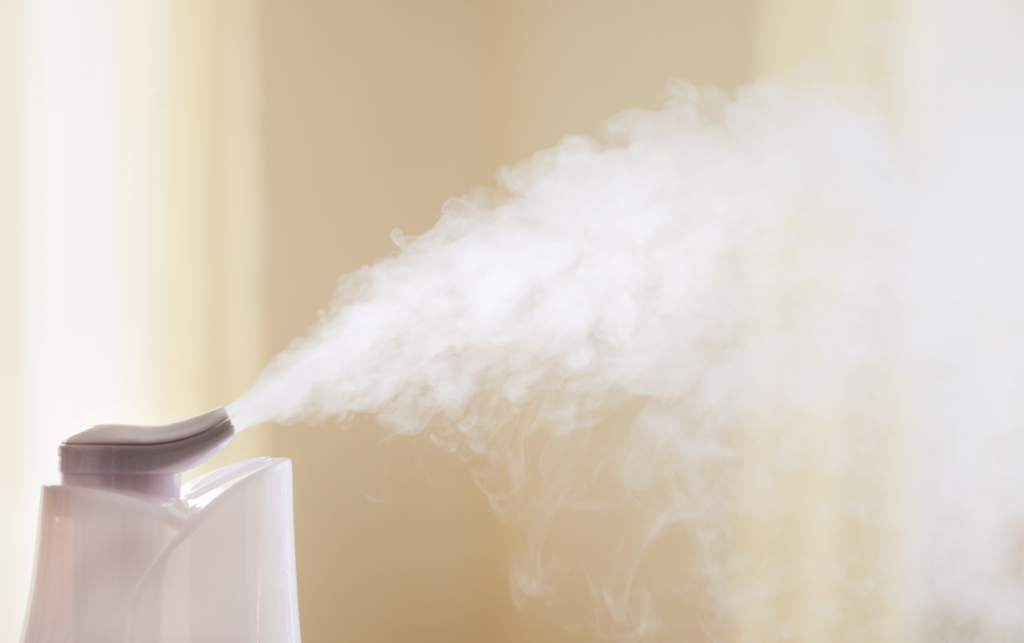Physical Address
304 North Cardinal St.
Dorchester Center, MA 02124
Physical Address
304 North Cardinal St.
Dorchester Center, MA 02124

When a cough strikes, finding relief can feel like a never-ending quest. I've often wondered if a humidifier could be the secret weapon in easing those relentless coughs. With so many opinions floating around, it’s tough to know whether adding moisture to the air is truly beneficial or if it could make things worse.
In this article, I’ll dive into the science behind humidifiers and their impact on
When a cough strikes, finding relief can feel like a never-ending quest. I’ve often wondered if a humidifier could be the secret weapon in easing those relentless coughs. With so many opinions floating around, it’s tough to know whether adding moisture to the air is truly beneficial or if it could make things worse.
In this article, I’ll dive into the science behind humidifiers and their impact on coughs. From understanding how humidity affects our respiratory systems to exploring the potential downsides, I’ll share insights that could help you make an informed decision. Let’s unravel the mystery and discover whether a humidifier is your ally in the battle against coughing.

Humidifiers play a significant role in maintaining optimal indoor humidity levels. They add moisture to the air, which can help alleviate discomfort caused by dry air, particularly during cold months.
Humidifiers maintain indoor moisture by releasing water vapor or steam into the air. They change the water’s state—either through evaporation or physical vibration—depending on the type. The resulting humidity can soothe irritated respiratory tracts, supporting better breathing. They can also ease symptoms related to dry air, such as scratchy throats and dry skin. Proper usage includes regular cleaning and maintaining optimal moisture levels to avoid excess humidity, which may worsen some respiratory conditions.
Coughing serves as a vital defense mechanism for the respiratory system. Understanding its underlying causes and the impact of humidity on respiratory health is essential for managing cough effectively.
Using a humidifier can significantly aid in cough relief, particularly by enhancing moisture levels in the air. Below are the key benefits to consider:
Increased moisture in the air can soothe the throat, reducing irritation associated with coughing. I notice that when the air is humid, it alleviates the scratchiness that often triggers coughs. Research indicates that hydration supports mucus function, allowing it to trap irritants effectively. Healthy mucus can prevent throat dryness, leading to a more comfortable breathing experience.
Dry air can exacerbate coughing, especially during winter seasons or in arid environments. Humidifiers help mitigate this by injecting moisture into the air, which softens the respiratory tract. I find that this reduction in dryness lessens inflammation and minimizes the urge to cough. Studies show that maintaining humidity levels between 30% and 50% protects against airway irritation, benefiting overall respiratory health.
Humidifiers can pose certain drawbacks that may affect respiratory health. It’s important to recognize these risks to use them effectively and safely.
Over-humidification occurs when humidity levels exceed 50%. Excess moisture creates a favorable environment for mold and dust mites, both of which can aggravate respiratory conditions. Symptoms like increased coughing and sneezing may worsen in high humidity. Monitoring humidity levels, using a hygrometer, ensures that air remains within the ideal range.
Regular maintenance is crucial for humidifiers. Stagnant water in tanks can lead to the growth of bacteria and mold, releasing harmful particles into the air. It’s important to clean humidifiers thoroughly according to manufacturer instructions, typically every few days. Change the water daily and use distilled water, which minimizes mineral buildup and prevents microbial contamination.
I gathered insights from medical professionals on using humidifiers for cough relief. Experts highlight their benefits and considerations when incorporating them into cough management strategies.
Experts recommend using a humidifier during dry winter months or in arid climates. Optimal humidity levels can help relieve coughs caused by dryness. It’s essential to monitor humidity and maintain levels between 30% and 50% for respiratory comfort. They suggest enhancing air quality during allergy seasons too, as increased moisture can alleviate nasal irritation and throat dryness.
Experts point out various alternatives to humidifiers for managing coughs. Options include:
These alternatives provide effective cough relief without the risks associated with humidifiers when used improperly.
Using a humidifier can be a game-changer for relieving coughs caused by dry air. It helps soothe irritated airways and improves overall respiratory health when used correctly. I’ve found that maintaining humidity levels between 30% and 50% strikes the perfect balance for comfort without inviting mold or dust mites.
However, it’s crucial to stay vigilant about humidity levels and keep the humidifier clean. Regular maintenance is key to reaping the benefits without the downsides. For anyone struggling with coughs in dry environments, a humidifier could be just what you need to breathe easier and feel better.